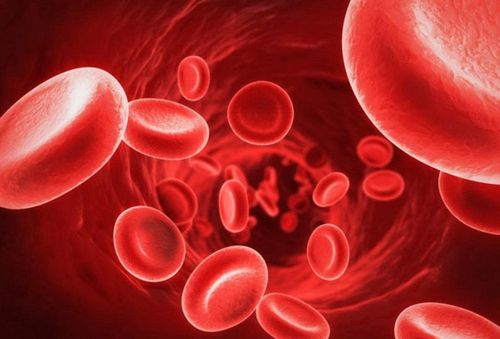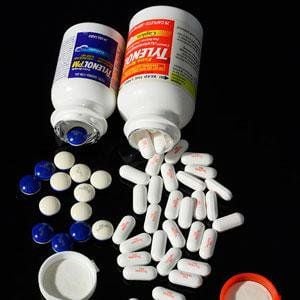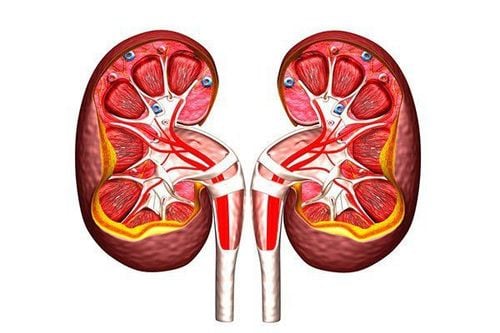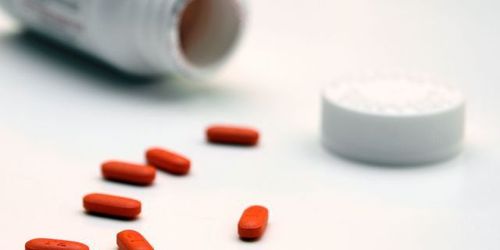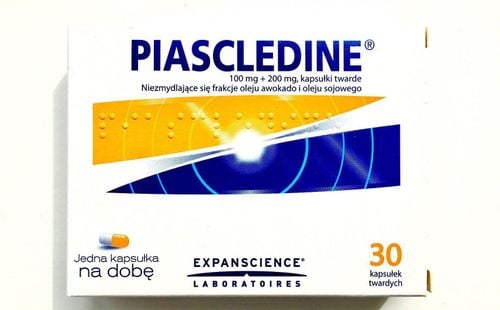Article by Pharmacist Nguyen Thi Thanh Nga - Clinical Pharmacist - Pharmacy Department - Vinmec Times City International General Hospital
Acupan® has the active ingredient nefopam, which is a pain reliever mainly prepared in injectable form and used in hospitals. Therefore, to ensure safety, patients need to follow the instructions of their doctor and medical staff.
1. What is Acupan®?
Acupan® has the active ingredient nefopam. This is a centrally acting analgesic but does not belong to the opioid group, nor is it in the same group as morphine. In the Vietnamese market, the drug is prepared in the form of intravenous injection and is mainly used in hospitals.
2. The uses of Acupan®?
The drug is often used in cases of acute pain, especially postoperative pain. Although the pain-relieving mechanism of Acupan® is not fully understood, the drug is a fast, strong, and non-addictive painkiller. The drug has muscle relaxant, anticholinergic, and sympathomimetic effects.
The drug must be prescribed and monitored by doctors and medical staff. You should not use it without a prescription. The dosage of the drug depends on the severity of the pain as well as consideration based on your liver and kidney function. The usual dose is 20mg per use. The drug is injected intravenously slowly for at least 15 minutes. The dose can be repeated every 4 hours if necessary, the maximum total daily dose should not exceed 120mg.
The drug should be diluted with common infusion solutions such as saline or isotonic sugar solution to ensure the correct infusion time as directed.
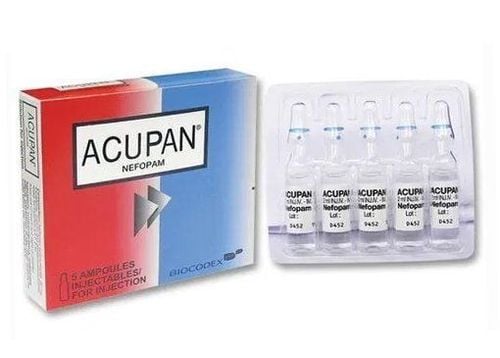
3. Which patients should not use Acupan®?
Acupan® is contraindicated in children under 15 years of age. The drug should not be used in patients with seizures or a history of seizures, patients at risk of urinary retention related to urinary prostate disorders, patients with closed-angle glaucoma, and patients with myocardial infarction because the drug can worsen symptoms or be a risk factor for initiating symptoms in these patient groups.
The drug is metabolized by the liver and excreted in the urine. Therefore, the drug should be carefully considered in patients with severe hepatic and renal impairment. The drug can exacerbate cardiovascular diseases due to increased heart rate, so doctors may be more cautious in patients with cardiovascular problems. Elderly people may be more sensitive to the side effects of the drug and careful consideration is needed before using Acupan®.
Avoid using Acupan® in cases of known hypersensitivity to the drug. The drug is secreted into breast milk at a concentration equal to the serum drug concentration. There is insufficient safety data for the use of the drug in pregnant and breastfeeding women.
4. What are the possible side effects of Acupan®?
Not all patients experience side effects from the drug, and not all side effects of the drug occur in one patient.
During the use of the drug, you may feel drowsy, nauseous, vomiting, dizzy, dry mouth, urinary retention, sweating...
You should follow all instructions from medical staff during the use of the drug and be treated in the hospital. When the drug is used in the appropriate dose and monitored by medical staff, reports of side effects are usually rare or mild and transient. If any abnormal symptoms occur during or after the drug infusion, you should immediately notify medical staff for advice, support, and timely treatment.
Drug poisoning is very rare. However, when used in overdose, the drug can cause dilated pupils, blurred vision, convulsions, hallucinations, agitation, respiratory failure, rapid heart rate, and other arrhythmias, even cardiac arrest and coma.
Oral nefopam is not available in Vietnam, however, in case of oral overdose (especially when using 1.5 - 2g of oral nefopam or more), the patient should be taken to the hospital immediately for emergency and timely treatment. Nefopam does not belong to the opioid analgesic group like morphine, so there is currently no similar antidote. At the hospital, doctors will provide emergency care for a poisoning situation by using activated charcoal if the drug has just been taken, providing airway support, respiratory support, circulatory support, monitoring vital signs, electrocardiogram, and treating symptoms.
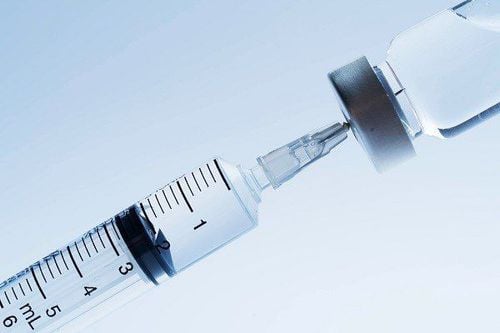
5. Precautions when using Acupan®?
You need to discuss with your doctor and medical staff about your medical history and medication history, especially cardiovascular conditions; mental disorders such as anxiety, insomnia, depression; eye diseases such as closed-angle glaucoma being treated, or symptomatic prostatic hypertrophy.
The injectable form of the drug is usually used for a short period, however, you need to discuss with your doctor and pharmacist when you need to use any other medications during treatment, as the drug may interact with other drugs or require closer monitoring.
You will be advised to rest for 15 to 20 minutes after Acupan® infusion to avoid some side effects such as nausea, vomiting, dizziness, and sweating.
You should avoid alcohol during the use of the drug, as alcohol can increase the side effects of the drug.
Follow the instructions of your doctor and medical staff, and discuss any abnormalities and concerns with medical staff for timely advice and support.
Acupan® has the active ingredient nefopam, which is a pain reliever mainly prepared in injectable form and used in hospitals. Therefore, to ensure safety, patients need to follow the instructions of their doctor and medical staff.
Please dial HOTLINE for more information or register for an appointment HERE. Download MyVinmec app to make appointments faster and to manage your bookings easily.






